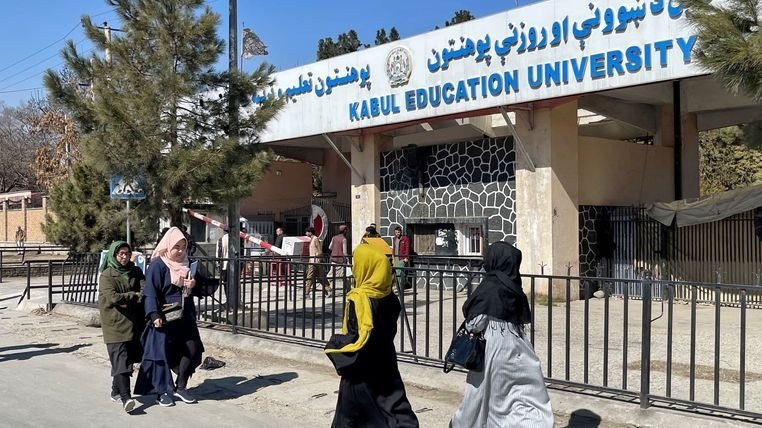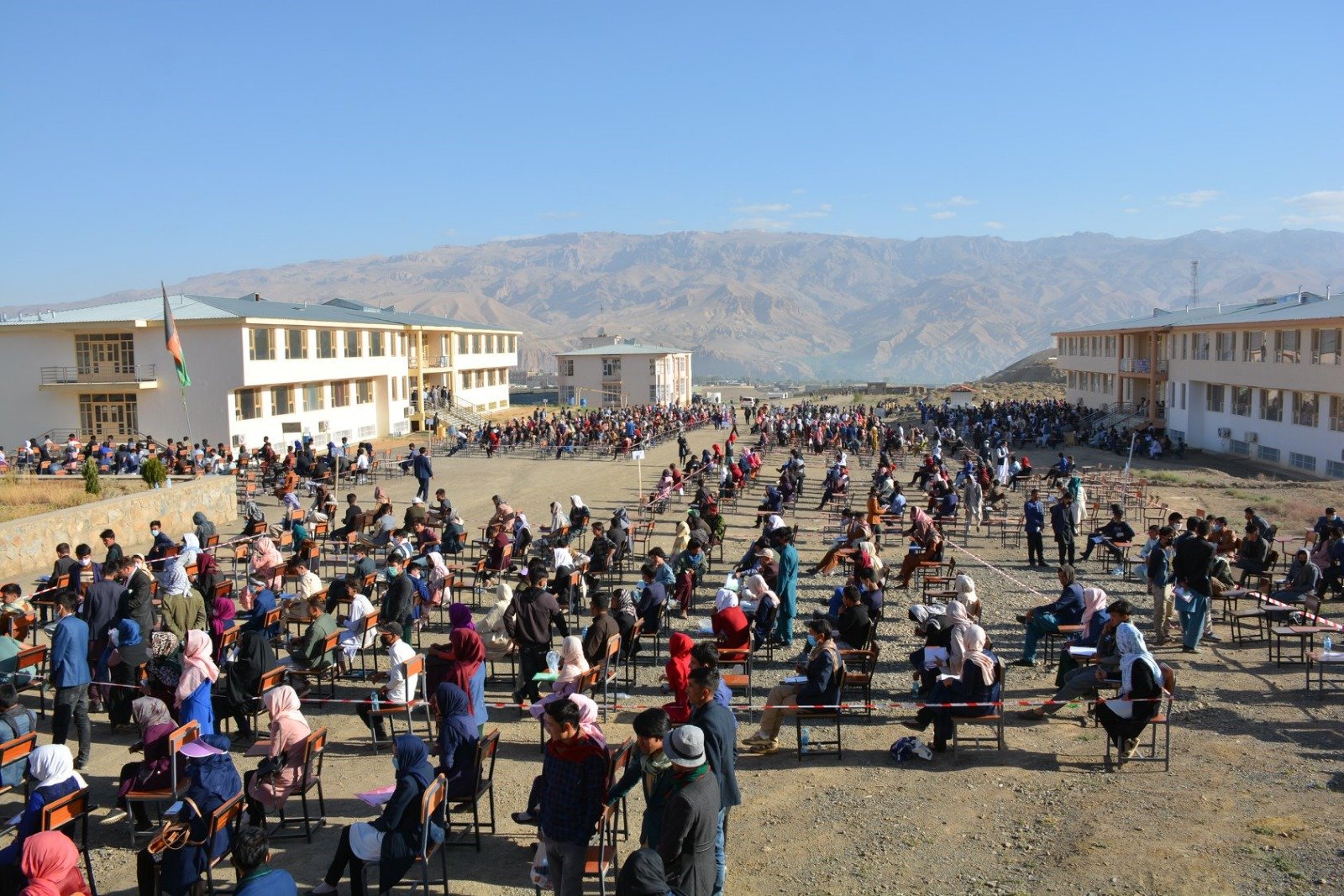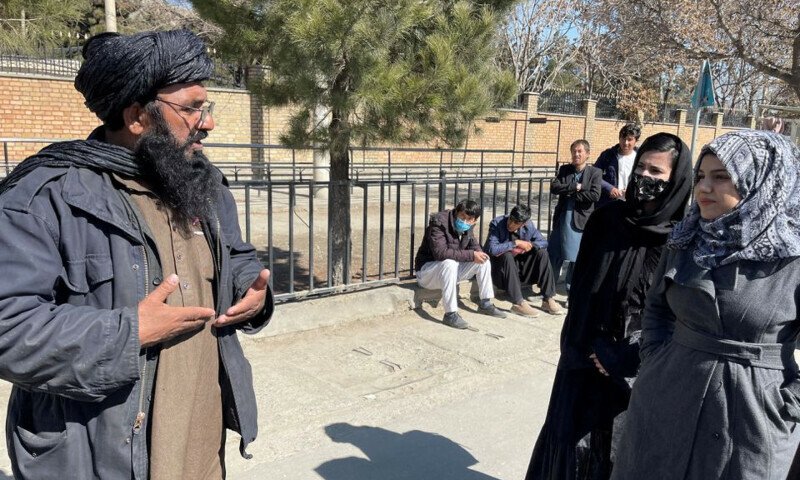Open Letter to the H.E. Chancellor Olaf Scholz, Chancellor of Germany
Taliban Ban on Women’s Education in Afghanistan
H. E. Chancellor Olaf Scholz!
As the former Minister of Higher Education of Afghanistan, I am writing this letter as a call for immediate and adequate attention to the hard situation of women in Afghanistan, and for effective measures in protecting fundamental human rights of Afghan women particularly their right to education.
I am deeply concerned by the recent decision taken by the Taliban to ban women in Afghanistan from participating in university-level education. On Tuesday, December 20, 2022, the Taliban issued a statement suspending all women from attending university. It is a decision that systematize discrimination against women and girls and revers their empowerment back to the Age of Ignorance.
Since the Taliban came to power, they have issued 16 orders and taken a series of highly repressive measures breaching women and girl’s fundamental human rights, which severely affect their lives in the country. Afghan girls have been banned from secondary school education. Universities were forced to implement new rules including gender-segregated classrooms and entrances, and women were only permitted to be taught by female professors or old men.
Women are not only prohibited from going to school and university, but they have also been pushed out of many government jobs. In addition, they are also forbidden from travelling without a male relative, and must cover up outside the home, ideally with a burqa. In November this year, they were prohibited from going to parks, funfairs, gyms, and public baths. In another dramatic announcement on December 24, 2022, the Taliban ordered all local and foreign nongovernmental organisations (NGOs) to stop women employees from coming to work, which will disrupt vital and lifesaving assistance to millions.
H.E. Chancellor,
During the Islamic Republic of Afghanistan, from 2001 to 2021, the education system in Afghanistan improved significantly. According to a report, 8.92 million students, 3.38 million of whom were females, were enrolled in 15,572 schools in the 2012-2013 academic year, which was a remarkable achievement compared to pre 2001 era where we had less than one million students enrolled in schools. In 2018 the enrolment number arose to around 10 million with the number of girls in primary school increasing from almost zero in 2001 to 2.5 million in 2018.
As of June 2020, there were 172 higher education institutes in Afghanistan, of which 39 were public and 128 were private universities or higher education institutions. In 2020, 53.3% of the total student population of 422, 869 students were enrolled in private universities and institutes, while 46.7% were enrolled in public institutions.
Many steps were also taken to enhance the quality and gender equity in education. These achievements were not possible without generous support provided by international community particularly Government of Germany.
The reemergence of Taliban as the governing force has put all achievements related to education in serious risk. They have reversed much of the progress made in the past two decades, which is the cause of great concerns among the Afghan people, and in particular among the women and girls, lecturers and researchers.
The Taliban’s approach towards women’s education not only violates the human fundamental rights (Articles 26 & 27, Universal Declaration of Human Rights ), but it is also clearly against the Islamic values and orders. Islam urges both men and women to seek knowledge. This is why Islamic countries have unanimously condemned the Afghan Taliban’s ban on higher education for women and girls. What is happening in Afghanistan is a gender apartheid and may amount to a crime against humanity.
Furthermore, as SDG 4 indicates, an inclusive and quality education for all women is an important element in promoting peace and prosperity for people and planet, now and into the future. With this in mind, the Taliban’s prohibition of education to half of the Afghan population is a decision with potentially disastrous consequences for the future of Afghanistan and will drive more Afghans to leave the country.
While I welcome the international community’s position against the Taliban’s decision on women’s education, particularly the announcement made by the Minister of Foreign Affairs of Germany, the tough situation in Afghanistan, however, requires more actions and measures to ensure that girls and women in Afghanistan are finally guaranteed their human rights. The world has the responsibility to ensure that Afghan women receive protection for their fundamental human rights. The international community cannot and should not stay silent in the deceptive hope that these prohibition measures are temporary. If more are not done and immediate measures are not taken by the international community the future of Afghanistan would be immensely dark.
Therefore, I call on the Government of Germany to:
- Stay in solidarity with the Afghan women and support them in protecting their rights and freedoms. Germany along with the international community may increase their diplomatic pressure on the Taliban regime to reverse the multiple bans. Women must be allowed to work and to move freely, and girls must be allowed to continue to go to school and university. The norms and principles which are fundamental for the progress of the higher education should be maintained.
- Continue and increase its support and assistance for Afghan female students as well as Afghan lecturers and researchers by providing more scholarship programs for education and research, and supporting home schooling and online platforms or academies for sustaining the female education in Afghanistan. Online education offers unique and essential teaching and learning opportunities for women and girls who have been prevented from both teaching and attending the university classes.
- Provide urgent protection measures and support to the protesting professors and lecturers. Responding to the unjust and immoral ban on women education, several university professors and lecturers have resigned from public and private universities. While they are continuously growing in numbers in submitting their resignation letters, I am deeply concerned about their security. Their resignation was considered by the Taliban as an objection to Islam, which means they may face brutal punishment or detainment if they are not back to university. Thus, it is requested that they be provided with protection as well as financial support as they are losing their jobs.
- In coordination and collaboration with other members of the international community, ban all supports to the Taliban (direct or indirect). They must be held responsible for their actions and faced with more pressure and sanctions under the international human rights law.
At the end, I would like to appreciate the Government of Germany for all supports provided to Afghanistan during the last two decades and before, in particular to the higher education sector. Wishing you and the people of Germany all the best for the year 2023.
Dr. Abas Basir
Former Minister of Higher Education of Afghanistan
Email: abas.basir@gmail.com



